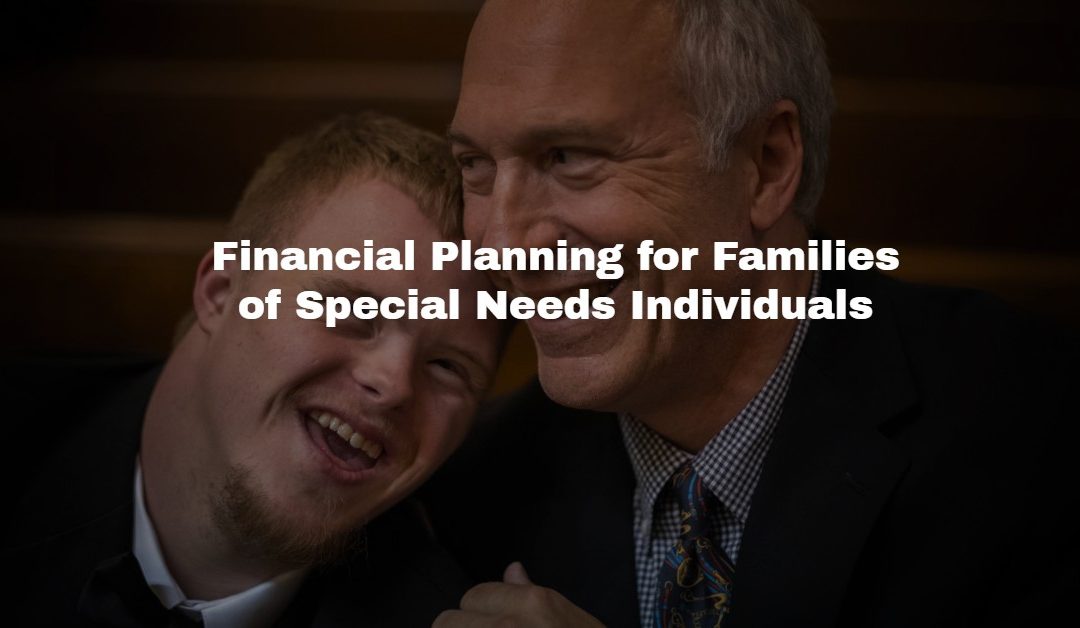An ABLE account should be seen as another planning tool that can be used to create a more comfortable and enriched like for a person with a disability not as a replacement for a Special Needs Trust. A combination of the two may enable an individual with a disability to have greater control over their life as well as being able to provide the individual with a higher level of care than can be provided by only government benefits.
There are many different considerations that must be taken into account when deciding what would best suit the individual’s needs including their age, proof of disability, Medicaid payback, funding restrictions, types of expenses to be paid, amount of funding, costs, and flexibility for the beneficiary.
The comparison chart below will assist with the basic fundamentals of various types of Specials Needs Trusts and an ABLE account to begin the process of deciding what will be the best option for the individual.
This chart is not a replacement for professional advice for each individual’s unique situation. While it will assist with understanding the basics of Special Needs Trusts and ABLE accounts, there are more complex and complicated issues that cannot be completely explained here.
The presence of an ABLE account is not a replacement for an estate plan and trust planning for an individual, and while it may be a useful tool in many cases, it is not always the best solution for a person with special needs to save money.
When deciding if a Special Needs Trust or and ABLE account might be better suited for the individual, it would be beneficial to consult with a special needs attorney about which type of account with be best for the specific individual’s needs.
An attorney can better discuss in detail how different types of Special Needs Trusts compare, and if a trust, an ABLE account, or both would be best suited for the individual. At Hopler, Wilms, & Hanna, PLLC, our attorneys have experience in drafting Special Needs Trusts and assisting with the difficult decision of how to protect an individual and best provide for their future needs. If you are interested in scheduling a consultation regarding the best way to protect your loved one, contact our office today for assistance.
| ABLE Account | Third Party Pooled Special Needs Trust | First Party (d)(4)(c) Pooled Special Needs Trust | Third Party Non-Pooled Special Needs Trust | First Party (d)(4)(A) Non-Pooled Special Needs Trust | |
| Who is eligible? Are there age restrictions? | An individual must have a disability that occurred before age 26 and must be able to provide written documentation from a licensed physician certifying the disability or must be receiving or eligible to receive SSI or SSDI. | Used for individuals who are disabled but may be used for a beneficiary who is borderline disabled and may need other benefits such as Medicaid, SNAP, or Housing Subsidy. There is no age restriction for the beneficiary. | Used for an individual age 64 or younger. | Most third-party trusts are established for individuals who are disabled; however, the beneficiary not have to have a specific disability. Can be used if the family suspects there may be a need for government benefits in the future. | Requires an individual be disabled per SSA regulations but the trustee can be a family member, friend, professional or corporate trust. |
| Who can set up and fund the account? | The beneficiary’s parent or legal guardian can set up the account. Any person can contribute to the beneficiary’s ABLE account. | The grantor can be anyone except the beneficiary. | The grantor can be the beneficiary, parent, grandparent, court or legal guardian. Any agent acting under power of attorney can set up a first-party special needs trust. | Same as third party pooled special needs trust. | The grantor can be the individual, parent, grandparent, court or legal guardian. |
| Can the beneficiary have more than one account or type of trust? | A beneficiary can have only one ABLE account. | A beneficiary can have more than one trust account. | Same as third party pooled special needs trust. | Same as third party pooled special needs trust. | Same as third party pooled special needs trust. |
| Are there restrictions on contributions? | There is a limit of $15,000 per year that can be contributed to an ABLE account; however, a beneficiary who does not participate in a pension plan through their employer can contribute an additional $12,060 of their wages per year. | There are no limits on contributions per year; however, no funds that the beneficiary has a legal right to can be contributed. | There are no limitations on how much can be contributed per year. Contributions can be made by the beneficiary or with funds that the beneficiary has a legal right to. | Same as third party pooled special needs trusts. | Same as first party pooled special needs trusts. |
| Are Medicaid benefits protected? | A beneficiary can keep Medicaid as long as the disbursements are for qualified expenses and does not exceed the state’s ABLE plan combined limit. | A beneficiary can keep Medicaid as long as all distributions are made to vendors or third parties. Cash cannot be distributed to the beneficiary. | Same as third party pooled special needs trust. | Same as third party pooled special needs trust | Same as third party pooled special needs trust |
| Are SSI benefits protected? | A beneficiary can keep SSI as long as the disbursements are for qualified expenses, and the ABLE account balance remains below $100,000. | The trust is set up to protect SSI benefits. There are no restrictions on account balance in order to maintain eligibility. | Same as third party pooled special needs trust. | Same as third party pooled special needs trust. | Same as third party pooled special needs trust. |
| What type of assets are accepted? | Cash assets are used to fund an ABLE account. Non-cash assets are not accepted. | Cash assets can be used to fund the trust. Funds are pooled together for investment purposes. | Same as third party pooled special needs trust. | Unless a corporate or other professional trustee has rules specifying regarding assets that can be held in a trust, there are no rules as to what kinds of assets are acceptable. | Restrictions will vary depending on the trustee’s rules or practices. An individual trustee may be more willing to hold real estate in a trust. |
| What expenses can be paid? | Expenses must be related to the beneficiary’s disability. Funds used to pay for housing must be spent within the same month that funds are taken from the account. | Disbursements can pay for goods and services that will improve the quality of life of the beneficiary while protecting SSI and Medicaid benefits. Expenses do not have to be related to the beneficiary’s disability. | Disbursements are for the benefit of the beneficiary and can pay for goods and services that will improve the quality of life for the beneficiary and also protect SSI and Medicaid benefits. Expenses do not have to be related to the beneficiary’s disability. | Same as third party pooled special needs trust. | Same as first party pooled special needs trust. |
| How are funds disbursed from the account? | The designated beneficiary or the person with the authority to sign for the beneficiary has account access to may disbursements by check or credit card. | An advocate is responsible for making requests for disbursements on behalf of the beneficiary. | Same as third party pooled special needs trust. | The trustee has the sole decision making ability regarding all distributions from a special needs trust. | Same as third party special needs trust. |
| Is the account revocable? | Once an ABLE account is set up, the funds in the account are irrevocable. | The trust is revocable until funded. | The trust is irrevocable. | Same as third party pooled special needs trust. | The trust is irrevocable. |
| What happens to the remaining funds upon the death of the beneficiary? | For a beneficiary who received Medicaid, an ABLE is subject to Medicaid payback for medical benefits received from the time the ABLE account was created. Any remaining funds in the account are paid to the estate of the beneficiary. | There is no Medicaid payback requirement. Some pooled trusts do not retain any of the remaining funds, and those funds will go to the successor beneficiary. Other pooled trusts retain all or a portion of the funds. | For this type of trust, federal law authorizes the pay back for medical claims paid by Medicaid on behalf of the beneficiary, or the funds can go to a nonprofit organization. | There is no pay back requirement for a third-party special needs trust. The grantor can choose a remainder man or leave the beneficiary the limited power to choose a remainder man among individuals or charities. | Same as first party pooled special needs trust. |


